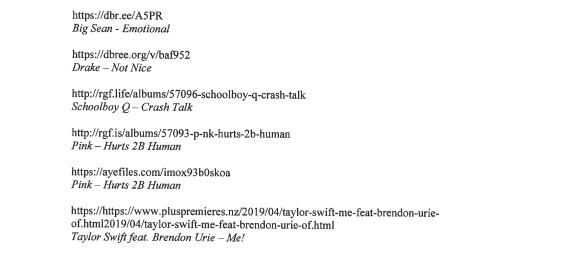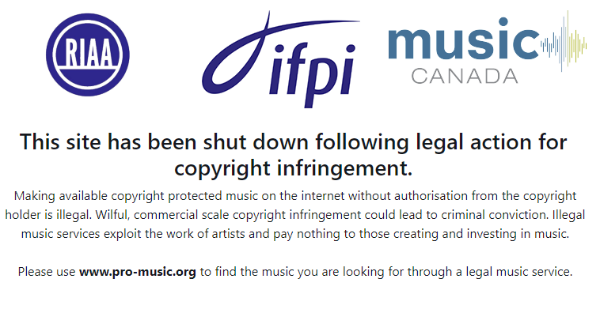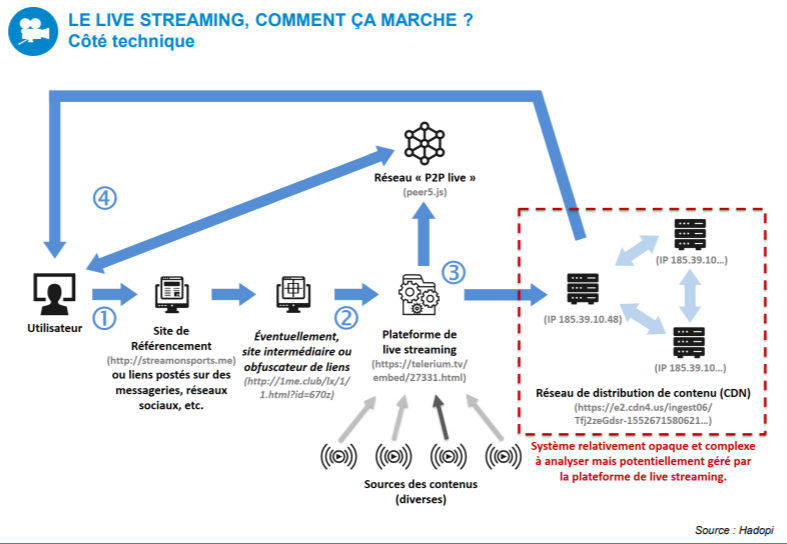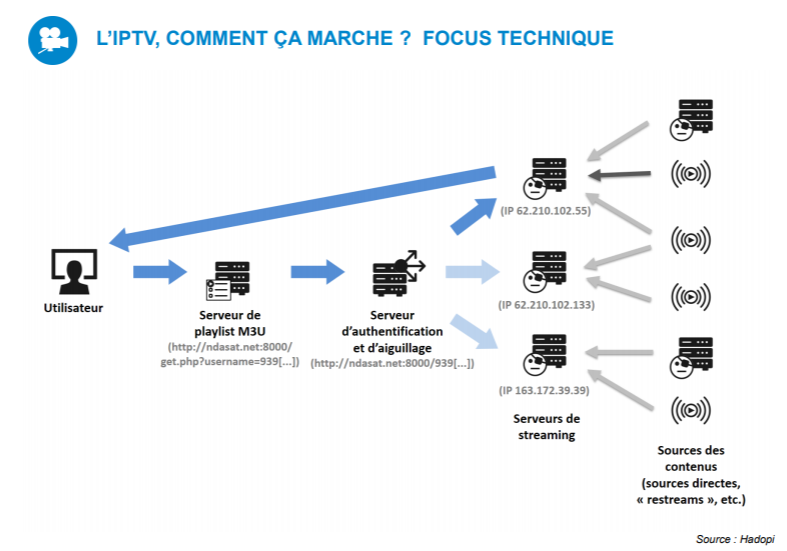Bell Wants Canada to Criminalize Pirate Streaming Services
jeudi 30 mai 2019 à 10:51 To ensure that the Internet is able to function to the benefit of the broader public, the Government of Canada appointed an external panel to review Canada’s communications legislative framework.
To ensure that the Internet is able to function to the benefit of the broader public, the Government of Canada appointed an external panel to review Canada’s communications legislative framework.
The panel is expected to release its findings next month, which will in part be based on input received from public submissions earlier this year.
Thus far, most submissions have surprisingly been kept from public view. However, University of Ottawa professor Michael Geist filed an Access to Information Act request and will publish the responses he receives. The first one comes from Canadian telco Bell and stretches to 167 pages.
Bell’s submission deals with a wide variety of topics ranging from online video regulations to online privacy requirements. For the purposes of this article, however, we focus on the company’s suggestions when it comes to piracy and copyright infringement.
One of the Government’s prime policy priorities, according to Bell, should be to combat content piracy.
“Canadian creators, the Canadian broadcasting system, and the Canadian
telecommunications system do not have effective tools to protect the content that is central to the creative and digital economy against the rampant growth of digital piracy,” Bell writes.
The submission goes on to cite various piracy studies that support this claim. It reports, for example, that 26% of all Canadians admit to having accessed pirated content online. In addition, it mentions that 15.3% of all Canadian households use set-top-boxes with piracy add-ons or access piracy subscription services.
According to Bell, now is the time to address the online piracy issue and it provides two concrete proposals. The first one is aimed at tackling pirate online streaming services, including the previously mentioned streaming sites and set-top boxes.
Bell equates this relatively new type of piracy to the boom in black market satellite piracy roughly three decades ago. At the time, lawmakers responded by updating the Radiocommunication Act to criminalize the decoding of encrypted signals and the possession and sale of devices intended for that purpose.
“This stimulated law enforcement activity in the area of satellite piracy, which contributed to the investigation and shutting down of piracy operations and also had a significant deterrent effect,” Bell notes.
The telco stresses that a similar response is now required to deal with the online streaming epidemic. Most pirate streaming services no longer rely on encryption but are based on rebroadcasting content over the Internet instead.
This type of streaming activity should be criminalized in the Broadcasting Act, Bell recommends. Not just the services and sites that do the ‘broadcasting,’ but also people who advertise or sell related products.
“Accordingly, we recommend that a provision be added to the Broadcasting Act making it a criminal offense for anyone subject to an exemption from the requirement to hold a license to knowingly operate, advertise, supply, or sell or offer to sell access to a distribution undertaking that retransmits broadcasting without lawful authorization from a programming undertaking.”
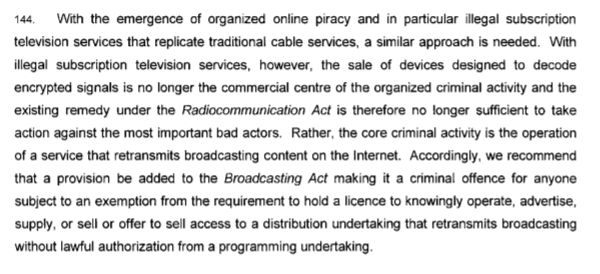
“Such an approach would concentrate criminal liability on commercially-motivated operators engaged in organized crime and would stimulate additional law enforcement activity to address this pressing threat,” Bell adds.
This measure doesn’t appear to be aimed at end-users but will certainly affect pirate streaming sites, vendors of pirate set-top boxes, as well as those who promote them.
The second anti-piracy proposal put forward by Bell is to make it possible for ISPs to block pirate sites more easily. This is the same plan proposed by Fairplay Canada Coalition last year, but with a twist.
“By far the most important tool that modernized legislation should adopt is the ability for an independent authority to grant orders requiring all Internet service providers (ISPs) to disable access to sites that are blatantly, structurally, or overwhelmingly engaged in piracy,” Bell writes.
This Fairplay blocking proposal was denied by the Canadian Radio-television and Telecommunications Commission (CRTC) last fall, which noted that it lacks jurisdiction. According to Bell, this is something the Government could change through an update of the Telecommunications Act.
Specifically, it wants the Government to amend current legislation to authorize the CRTC to approve and require Internet providers to disable access to sites that are blatantly, overwhelmingly, or structurally engaged in piracy.
That blocking is not a perfect solution, shouldn’t matter. Even a partial reduction in traffic to pirate sites, as has happened in other countries, should already be rather effective, Bell argues.
“A policy that reduces the total level of piracy by up to 40% from the level that would otherwise have prevailed, and that substantially increases the legal consumption of content, can only be considered incredibly effective. The fact that it does not eliminate 100% of piracy is not a justification for inaction,” the telco writes.
Website blocking also finds support in a separate submission from Shaw Communications, another major Canadian telco. Similar to Bell, Shaw believes that an update to the Copyright Act is required to achieve that. The company, however, rejects a proposal to tax ISP subscriptions to support copyright holders.
By criminalizing pirate streaming services and blocking pirate sites, Bell hopes to make a significant dent in Canada’s piracy rates. Whether the government’s expert panel will adopt these recommendations has yet to be seen.
Many copyright holders are likely to side with Bell, but there is plenty of opposition as well. Michael Geist, for example, characterizes Bell’s submission as “self-serving in the extreme,” noting that it poses shocking risks to many stakeholders in Canada’s communication industry.
Source: TF, for the latest info on copyright, file-sharing, torrent sites and more. We also have VPN reviews, discounts, offers and coupons.

 Little over a week ago the magnet torrent search engine
Little over a week ago the magnet torrent search engine 
 While movies and TV-shows tend to be the most sought-after content among pirates, music remains popular as well.
While movies and TV-shows tend to be the most sought-after content among pirates, music remains popular as well. 